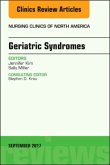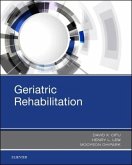This up-to-date bibliography of heretofore scattered references to nursing assistants includes literature pertinent to the construction of models to improve nursing assistant practice and emphasizes the psychosocial skills that are invaluable to the nursing assistant's work. Annotated reviews center on the tasks and context of nursing assistant work and ways to improve practice through training, organizational development, advocacy, and bargaining. Additional chapters present a tentative psychosocial model of nursing assistant practice, offer six intervention models, and investigate ways of further developing the nursing assistant occupation. Very highly recommended. Choice The role of the nursing home has expanded in the late twentieth century due to both the growing percentage of elderly in the U.S. population and to society's tendency to over-institutionalize people. In recent years, the kinds and quality of care given to the elderly in nursing homes have received intense scrutiny. This timely bibliography focuses on nursing assistants--the personnel who are with the elderly around the clock, doing a variety of tasks, ranging from helping them with basic functions to comforting them during periods of distress. Nursing assistants provide as much as 90 percent of the direct care received by the elderly in the nursing home setting. Emphasizing the psychosocial skills that make the nursing assistant's job so important to the well being of nursing home residents, Geriatric Nursing Assistants collects and annotates the heretofore scattered references to nursing assistants and includes literature pertinent to the construction of models that improve nursing-assistant practice. The first four chapters present the annotated reviews, which are organized in anticipation of the practice enhancement models discussed in Chapter Six. These reviews center on the tasks and context of the nursing assistant's work and on ways to improve practice through training, organizational development, advocacy, and bargaining. Chapter Five offers a tentative psychosocial concept of nursing-assistant practice that requires further development, detailing the various resident psychosocial circumstances to which the nursing assistant might respond helpfully and the kinds of interventions and techniques which the nursing assistant might attempt. In Chapter Six, intervention models--on inservice training, organizational development, advocacy, and bargaining--are presented in ideal-typical forms that recognize the limitations of daily practice; also, these models emphasize rigorous practice and its evaluation. Activities necessary to further develop the nursing-assistant occupation, including political action, are investigated in Chapter Seven, which also considers the moral aspects of a progressive agenda for nursing assistants. This reference seeks to improve services to nursing home residents and represents a valuable, practical contribution to the geriatric field. It will be useful to nursing home administrators and directors of nursing homes who must address ways to improve the working conditions of nursing assistants; to academicians in their research, training, and advocacy efforts; and to the training directors and supervisors in the field who can directly aid nursing assistants in the acquisition of needed knowledge and skills.
Hinweis: Dieser Artikel kann nur an eine deutsche Lieferadresse ausgeliefert werden.
Hinweis: Dieser Artikel kann nur an eine deutsche Lieferadresse ausgeliefert werden.








